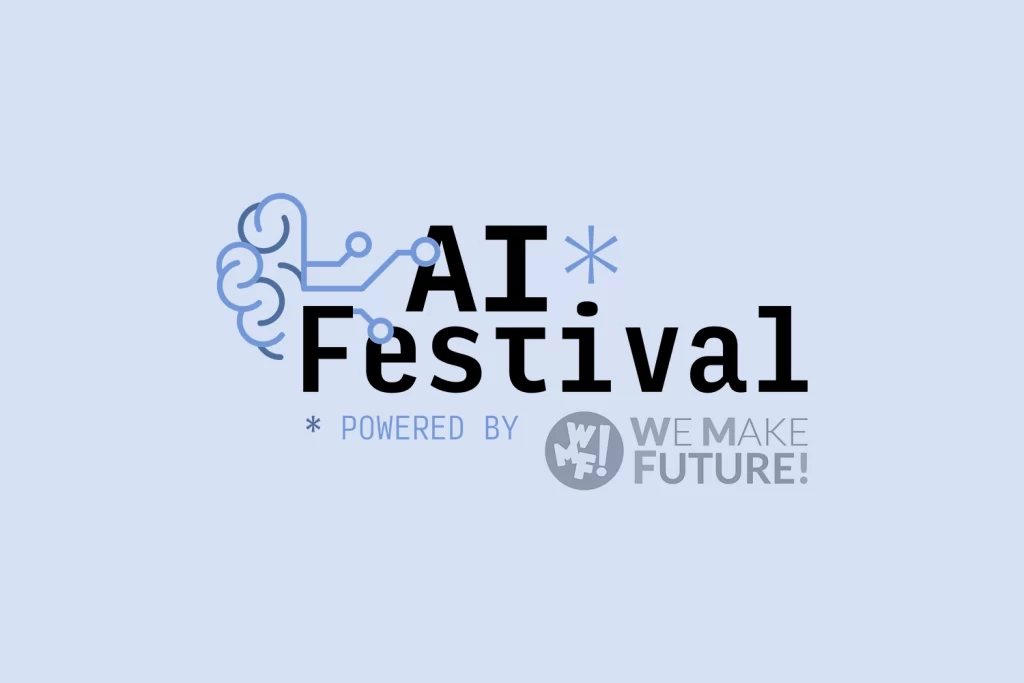SUMMARY
After years of conditional logic chatbots and basic virtual assistants, the market is registering the emergence of a more sophisticated technology category: the AI agents. These are autonomous software systems that collect data from their surroundings and use it to perform self-determined tasks in order to achieve predetermined goals. Unlike traditional conversational tools, these intelligent agents do not simply respond to predefined queries: they analyze contexts, make informed decisions, and orchestrate sequences of actions through APIs, databases, and external tools.
The shift in perspective is evident and lies in the concept of agentic reasoning: while non-agent chatbots lack memory and cannot learn from their mistakes, AI agents adapt to user expectations over time, providing personalized experiences and completing complex tasks by creating subtasks without human intervention.
What are the key principles that define AI agents?
All software independently completes various tasks set by the developer. So what makes AI and intelligent agents special? AI agents are rational agents. They make rational decisions based on their perceptions and data to produce optimal performance and results.
An AI agent senses its environment with physical or software interfaces. For example, a robotic agent collects sensor data, while a chatbot uses customer requests as input. The agent then applies this data to make informed decisions, analyzes the collected information to predict the best outcomes to support predetermined goals, and uses the results to formulate the next action to be taken.
The distinctive principles of AI agents include:
- Autonomy: ability to operate without constant supervision
- Responsiveness: rapid response to changes in the environment
- Proactivity: initiative in taking action to achieve goals
- Social capability: interaction with other agents, systems, and human users
- Continuous learning: performance improvement through experience
These principles make AI agents particularly effective in dynamic contexts such as customer care, where requests constantly vary and require contextual and personalized decision-making.
What are the benefits of using AI agents?
AI agents can significantly improve business operations and customer experiences through measurable and tangible benefits.
Improved productivity
AI agents are intelligent autonomous systems that perform specific tasks without human intervention.
In the area of customer care, for example, an agent can autonomously handle standard information requests (schedules, availability, order tracking), allowing human operators to focus on complex situations that require creative problem-solving and empathy.
Reduction in operating costs
Enterprises can use intelligent agents to reduce unnecessary costs resulting from process inefficiencies, human errors, and manual processes. Complex tasks can be performed with confidence because autonomous agents follow a consistent pattern that adapts to changing environments.
Concrete case study: INGO implemented a voicebot for a hospital facility that achieved uptake rates of 56% from day one, rising to 80% in the first month of operation. The client benefited from an economic saving of 30% compared to traditional management, while maintaining high standards of service quality.
Improved decision-making processes
Advanced intelligent agents use machine learning to collect and process huge amounts of data in real time. It is possible, for example, to use AI agents to analyze the demands for products in different market segments during the execution of an advertising campaign.
Improved customer experience
Customers seek engaging and personalized experiences when interacting with companies. AI agent integration enables organizations to personalize product recommendations, provide timely 24/7 responses, and innovate to improve customer engagement, conversion, and retention.
How does an AI agent work?
AI agents simplify and automate complex tasks by following a specific workflow when performing assigned tasks.
Determine objectives
The AI agent receives a specific instruction or goal from the user and uses the goal to plan activities that make the end result relevant and useful to the user. Accordingly, the agent divides the goal into several smaller executable activities. To achieve the goal, it executes these activities according to specific orders or conditions.
Acquire information
AI agents need information to carry out planned activities successfully. For example, they need to extract conversation logs to analyze customer opinions. Therefore, sometimes AI agents access different sources to search and retrieve the information they need.
Acquisition takes place through:
- Sensors and direct input: real-time conversations, filled forms, clicks
- Enterprise databases: CRM, ERP, internal knowledge base
- External APIs: payment systems, logistics platforms, third-party services
- Interaction with other agents: exchange of information with specialized agents
Implement activities
With sufficient data, the AI agent methodically implements the task to be performed. Between task completion, the agent assesses whether it has achieved the designated goal by seeking external feedback and checking its logs. In a tourism project carried out by INGO, data analysis revealed that 30 percent of the calls were for general information, a strategic area on which AI education was focused to autonomously handle these requests.
What are the types of AI agents?
Organizations create and implement different types of intelligent agents based on task complexity and the level of autonomy required.
Agents with simple reflexes
An agent with simple reflexes operates strictly according to predefined rules and immediate data. It will not respond to situations beyond a given event condition action rule. Thus, these agents are suitable for simple tasks that do not require extensive training. For example, you can use an agent with simple reflexes to reset passwords by detecting specific keywords in a user’s conversation.
Agents with model-based reflections
An agent with model-based reflexes is similar to an agent with simple reflexes, but has a more advanced decision-making mechanism. Rather than simply following a specific rule, in fact, a model-based agent evaluates outcomes and probable consequences before deciding.
Goal-based agents
Goal-based agents, or rule-based agents, are AI agents with more robust reasoning capabilities. In addition to evaluating environmental data, these agents compare different approaches to achieve a desired outcome.
Utility-based agents
A utility-based agent uses a complex reasoning algorithm to help users maximize the desired outcome. This agent compares several scenarios and their respective utility-related values or benefits. After that, it chooses the one that offers users the most benefits.
Learning agents
A learning agent continuously learns from previous experiences to improve its performance. Using sensory input and feedback mechanisms, the agent adapts its learning element over time to meet specific standards.
Hierarchical agents
Hierarchical agents are an organized group of intelligent agents arranged in levels. Higher level agents break down complex tasks into smaller ones and assign them to lower level agents.
INGO’s customer care solutions with AI agent
INGO has developed an integrated AI agent ecosystem designed specifically to transform the customer experience in omnichannel contact centers. The approach is not limited to simple automation, but creates hybrid intelligence where technology and human expertise enhance each other.
The INGO technology framework is based on three basic pillars:
- Intelligent automation of intake flows for identification, profiling and sorting of requests
- Specialized agents for channels and functions (voice, chat, email, WhatsApp)
- Orchestration platforms (XCALLY, ACUTE) for seamless integration with CRM and enterprise backend
These components work in synergy to create a system that does not replace human staff, but optimizes the division of labor between AI and operators, assigning each the tasks for which it is most effective.
AI Reception: conversational voicebots for first contact
The service AI Reception from INGO combines artificial intelligence and human assistance for a personalized approach to interactions. The system automatically recognizes the caller and routes the request to the most appropriate channel or operator, dramatically reducing wait times while maintaining the customer’s choice of whether to continue with automation or speak to an operator.
Mail Assistant: intelligent asynchronous management
Mail Assistant automates the management of incoming emails by providing timely and personalized responses to customer inquiries, without waiting, handling high message volumes, and sorting the most complex requests to the appropriate personnel.
Automation and orchestration: the Hybrid BPO model
INGO’s operating model does not aim to replace human staff, but to create hybrid teams where AI agents and operators work together in a complementary way. L’Hybrid BPO integrates both human operators and advanced technology, combining contextual understanding, complex problem solving and empathic communication typical of humans with the speed, accuracy and scalability of digital technologies.
What are the challenges associated with using AI agents?
AI agents are useful software technologies for automating business workflows and achieving better results. That said, when implementing autonomous AI agents for business use cases, organizations should consider some important challenges.
- Data privacy issues: the development and operation of advanced AI agents requires the acquisition, storage and movement of huge volumes of data. Organizations need to be aware of data privacy requirements and take steps to improve the level of data security, especially in regulated industries such as healthcare and finance.
- Ethical challenges: under certain circumstances, deep learning models may produce unfair, biased, or inaccurate results. Applying safeguards, such as human reviews, ensures that clients receive useful and fair answers from the agents employed.
- Technical complexities: implementation of advanced AI agents requires specialized experience and knowledge in machine learning technologies.
- Computing resources: training and deploying AI agents for deep learning requires substantial computing resources. Organizations need to evaluate scalable cloud solutions that can handle spikes in traffic without prohibitive infrastructure investments.
The future of customer care is already here
AI agents represent more than a technological innovation: they constitute a paradigm shift in the way organizations conceive of customer care. No longer a cost center to be optimized, but an intelligent orchestrator of experiences that balances automation, personalization, and human empathy.
Organizations investing in AI agent solutions today are positioned to:
- Measurable operational efficiency through intelligent automation of repetitive tasks
- Improved customer satisfaction through reduced response time and H24 availability
- Dynamic scalability without human capacity constraints
- Predictive insights from conversations analyzed in real time
- Competitive advantage in markets where customer experience is differentiating
INGO has made human-machine convergence its operational DNA, building solutions that see AI and people not as alternatives, but as synergistic components of an evolved customer operations ecosystem.
discover ingo solutions
Why rely on an external contact center
Rely on an external contact center like INGO to increase productivity by adopting artificial intelligence-based tools and optimizing agent utilization.
SCOPRI DI PIÙ
Contact us
Find out more about our CX services
INGO, thanks to multichannel and technological innovations, is able to build specific projects for each company, following the process from the initial analysis phase to the implementation of integrated, scalable and modular omnichannel strategies. For over 20 years, Made in Italy at the service of the customer experience.
blog



